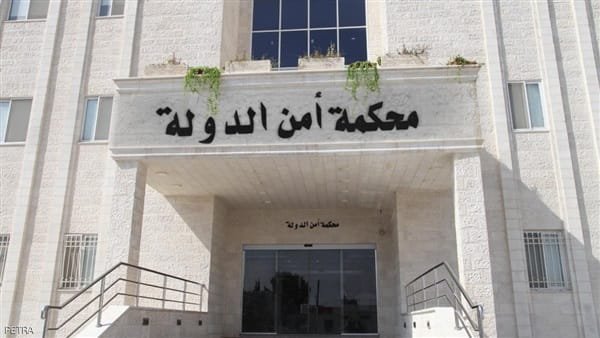Amman, Jordan – On Wednesday, the State Security Court in Jordan issued rulings against defendants in cases that targeted national security. These cases caused chaos in the Kingdom.
This chaos was revealed in mid-April in Jordan.
The court decided to apply the most severe penalty among the charges in the missile manufacturing case within Jordan.
The defendants, Abdullah Hisham and Moaz Ghanem, were sentenced to temporary work for 15 years, including fees. The court’s strict ruling resonated across Jordan.
It was decided to place the third defendant in the case, Mohsen Ghanem, on temporary work for 7 and a half years. This includes fees, and highlights how Jordanian authorities are addressing the issue.
The court charged the defendants Abdullah and Moaz with manufacturing weapons with the intention of using them illegally. This was in conjunction, in violation of the provisions of Articles (3/f) and (7/c) of the Prevention of Terrorism Law No. 55 of 2006 and its amendments. The charges also refer to Article (7/f) of the same law.
The accused Mohsen was charged with interfering in the manufacture of weapons with intent to use them illegally in conjunction. This violated the provisions of Articles (3/f) and (7/c) of the Prevention of Terrorism Law No. 55 of 2006 and its amendments. It also referred to Article (7/f) of the same law.
The three defendants were charged with carrying out acts disturbing public order. These acts endangered the safety and security of society, violating Articles (2 and 7/i) of the Prevention of Terrorism Law No. 55 of 2006 and its amendments.
Recruitment issue
The court decided to sentence the defendants, Marwan Al-Hawamdeh and Anas Abu Awad, to temporary work for 3 years and 4 months. This included fees, on charges of carrying out acts disturbing public order and endangering society’s safety and security, in violation of the Prevention of Terrorism Law within Jordan.
In the case of training for illegal activities, the court decided to sentence Khader Abdel Aziz, Ayman Ajawi, Mohamed Saleh, and Farouk Al-Samman. They received temporary work for 3 years and 4 months, on charges of carrying out work disturbing public order and endangering society’s safety and security, in violation of the Prevention of Terrorism Law in Jordan.
drones
In the drone case, the court decided that the defendants were not responsible for the charges. These charges were brought against them by the Public Prosecution Office of the State Security Court in Jordan.
The court found that the special intent required by the legal text for the commission of the crime had not been achieved in Jordan.
Accordingly, the court decided to release the defendants, Ali Ahmed Qasim, Abdulaziz Haroun, Abdullah Al-Hadar, and Ahmed Khalifa.
It is noteworthy that the decisions of the State Security Court are subject to appeal before the Court of Cassation in Jordan.
Facts of the first case, “missile manufacturing”
The charges and facts in the first case are summarized as a cell consisting of 3 elements. This cell began the process of manufacturing missiles inside the Kingdom, Jordan, and producing their structures.
The cell established two warehouses for manufacturing and storage purposes in Zarqa Governorate and the capital, Amman, Jordan.
One was fortified with concrete to store missiles and contained secret locked rooms within Jordan.
The cell received training and funds from abroad, and was able to produce the first model of a short-range missile. This activity took place in Jordan.
Facts of the second case “recruitment”
The two defendants visited regional countries and cooperated with external parties. Their aim was to recruit young people inside the Kingdom of Jordan.
The mechanism of work and communication in Jordan was confidential, and they received instructions and security courses from those parties.
There was identification of dead spots within the Kingdom of Jordan for the purpose of planting materials in their possession.
Facts of the third case, “Training”
Young men were trained in illegal activities, including advanced courses and security lessons within Jordan.
The training process and security lessons were conducted in several regions within the Kingdom of Jordan.
The aim of the training operations was to prepare young people to carry out operations. These operations, prepared in Jordan, would be assigned to them later.
Facts of the fourth case, “Drones”
Four young men coordinated with each other and met more than once to manufacture drones in Jordan.
The young men distributed roles among themselves and visited foreign countries. Their operation centered in Jordan intertwined with international collaborations.
One of the accused proposed the idea of making a glider and tested it on a farm within Jordan’s territory.

